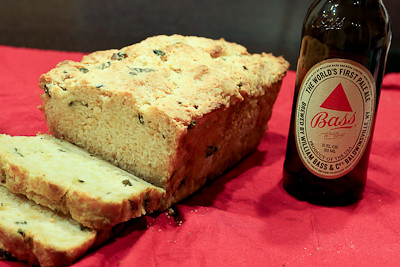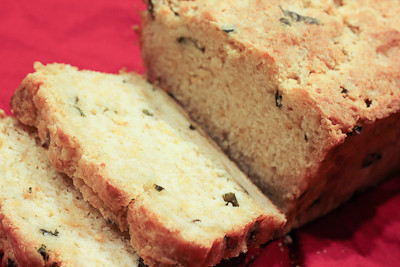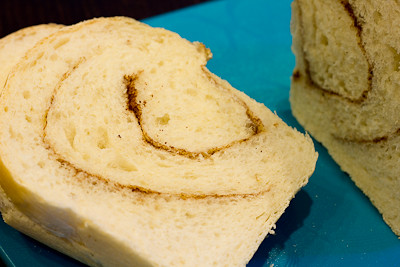
I'm so excited to be co-hosting this week's
Tuesdays with Dorie:
Baking with Julia along with Jessica of
Cookbook Habit, Spike of
Spike Bakes, and Steph of
A Whisk and a Spoon. Just in time for Valentine's Day, we baked Chocolate Truffle Tartlets.
I made this recipe over the course of a few days. I started the tart dough over the weekend and refrigerated it for a few days before making my tarts. This tart dough recipe is a little different from Dorie's tart dough we've been using the last few years - instead of pressing chunks of dough into the tart, this one is rolled out and then set into the tart pan, similar to what you would do with a traditional pie crust. When I removed it from the fridge, I could not immediately shape it into a round, it was way too hard. So I let it sit out on the counter for about 30 minutes first. After that, rolling it was a breeze as long as I floured it generously. If a piece came off on my rolling pin, I simply pressed it back down. You don’t need your tart dough to be perfectly even for this recipe :)
As with most chocolate recipes, I used semisweet chocolate chips instead of chopped chocolate in the double boiler. The "chocolate truffle" filling in these tarts is basically whipped egg yolks with chocolate, butter, and sugar. It is rich and creamy and delicious. Before pouring the filling into the tart pans, you add some chopped milk and white chocolate chunks (I used semisweet chocolate chips and white chocolate chips) and bits of biscotti for crunch. I did not have any biscotti on hand so I omitted it, but I definitely think a little crunch would have been great in these tarts. Next time I may try throwing some toffee bits in there for crunch and more flavor. We'll have to see if the toffee bits survive the bake, or if they just melt away into the filling...
I baked these in (2) 5.5″ tart pans and there was the perfect amount of filling to fit in these 2 pans. Apparently the recipe directs you to remove the bottom of your tart pan before starting, but I must have glossed over that part because I didn't even notice that until I started reading the
P&Q. I also did not place my tart pans on a baking sheet because in past experience with
TWD, that never worked well for me. I baked these tart pans directly on the oven racks and with the tart bottoms in my pans without any issues. I did have to bake for an additional 15-20 minutes, though, due to the larger size of my tart pans.
The texture of these tarts is a bit hard to describe. It reminded me quite a bit of a chocolate chess pie. Not really cakey or brownie-like, and not fudgey either. Just velvety smooth chocolate goodness? :) The extra chopped chocolate and biscotti are really what make this dessert special, in my opinion. They add some extra texture to each bite. Otherwise it would be a little boring (if you could really ever call chocolate boring!). My husband loved these and exclaimed that these tarts were "one of the best things you've made in a while." (Not sure if that was a compliment on how good these were, or a comment on how bad the other stuff I've been making is??? Ha!)
This recipe is definitely a keeper, and it was certainly the perfect sweet to share on Valentine's Day. You can find the recipe below, but be sure to check
here, to see how all the other bloggers in our group enjoyed this week's chocolately treat!
Chocolate Truffle Tartlets
Recipe by David Ogonowski, from
Baking with Julia by Dorie Greenspan
Makes 6 individual tartlets
1 recipe
Chocolate Dough [see below], well chilled
5 tablespoons unsalted butter, cut into 10 pieces
6 ounces bittersweet chocolate, finely chopped
8 large egg yolks
1 teaspoon pure vanilla extract
1/4 cup sugar
2 ounces white chocolate, cut into small dice
2 ounces milk chocolate, cut into small dice
4 biscotti, homemade or store-bought (you can use amaretti di Saronno), chopped
Line a jelly-roll pan with parchment paper and keep at hand. Remove the bottoms from six 4 1/2-inch fluted tartlet pans (or use pans with permanent bottoms and just plan to pop the tartlets out once they're filled, baked, and cooled); spray the pans with vegetable oil spray or brush with melted butter.
Cut the dough into 6 even pieces. Working with one piece at a time, shape the dough into a rough circle, then tamp it down with a rolling pin. Flour the work surface and the top of the dough and roll it into a circle 1/8 to 1/4 inch thick. As you roll, lift the dough with the help of a dough scraper to keep it from sticking. If the dough breaks (as it sometimes does even when the pros are rolling it), press it back together and keep going - it will be fine once it's baked. Fit the dough into a tartlet ring, pressing it into the fluted edges and cutting the top level with the edges of the pan. Again, patch as you go. Use a pastry brush to dust off any excess flour and place the lined tartlet ring on the prepared baking pan.
Chilling the crusts: When all of the shells are rolled out, chill them for at least 20 minutes.
Baking the crusts: Center a rack in the oven and preheat the oven to 350 degrees F.
Prick the bottoms of the crusts all over with the tines of a fork and bake for 12 to 15 minutes, rotating the pan halfway through the baking time, until the crusts are dry, blistery, and firm. Transfer the baking pan to a rack so that the crusts can cool while you make the filling. Reduce the oven temperature to 300 degrees F.
Making the filling: Bring an inch of water to the simmer in a saucepan. Put the butter and bittersweet chocolate in a large metal bowl and place the bowl over the saucepan - don't let the bottom of the bowl touch the water. Allow the butter and chocolate to melt slowly, stirring from time to time, as you work on the rest of the filling. Remove the chocolate from the heat when it is melted and allow it to cool until it is just slightly warmer than room temperature.
Put the yolks and vanilla extract in the bowl of a mixer fitted with the whisk attachment or in a large mixing bowl. Using the whisk or a hand-held mixer, start beating the yolks at medium speed and then, when they are broken up, reduce the speed to low and gradually add the sugar. Increase the speed to medium-high and beat the yolks and sugar until the yolks thicken and form a slowly dissolving ribbon when the beater is lifted.
Spoon about one third of the yolks onto the cooled chocolate mixture and fold them in with a rubber spatula. Don't worry about being too thorough. Pour the chocolate into the beaten yolks and gently fold the two mixtures together until they are almost completely blended. Add the cubed chocolates and biscotti, folding to incorporate the chunky pieces.
Baking the tartlets: Using an ice cream scoop or 1/4-cup measure, divide the filling evenly among the cooled shells. Smooth the filling with a small offset spatula, working it into the nooks and crannies as you circle the tops of the tarts. Bake the tarts for 10 to 12 minutes, until the tops look dry and the filling is just set. Remove to a rack to cool for about 20 minutes before serving.
Storing: Best the day they're made, these are still terrific after they've been refrigerated - they lose their textural finesse, but the taste is still very much there. For longer keeping, wrap the tartlets airtight and freeze them for up to a month. Thaw, still wrapped, at room temperature.
Chocolate Dough Recipe
Makes enough for six 5-inch tartlets or one 10-inch tart
1 1/4 cups all-purpose flour
1/4 cup unsweetened cocoa powder, preferably Dutch-processed
1/4 cup sugar
1/4 teaspoon salt
1 stick (4 ounces) cold unsalted butter, cut into small pieces
1 large egg yolk
1 tablespoon ice water
To make the crust by hand, put the flour, cocoa, sugar, and salt on a smooth work surface, preferably a cool surface such as marble. Toss the ingredients together lightly with your fingertips, then scatter the butter pieces across the dry ingredients. Use your fingertips to work the butter into the flour mixture until it forms pieces the size of small peas. Then use a combination of techniques to work the butter further into the flour: Break it up with your fingertips, rub it lightly between your palms, and chop it with the flat edge of a plastic or metal dough scraper.
Gather the mixture into a mound, make a volcanolike well in the center, and pour in the yolk and ice water. Use your fingers to break up the yolk and start moistening the dry ingredients, then, just as you did with the flour and butter, toss the ingredients with your fingers and use the dough scraper to chop and blend it. The dough will be crumbly and not really cohesive. Bring it together by smearing small portions of it across the work surface with the heel of your hand.
Chilling the dough: Gather the dough together and shape it into a rough square. Pat it down to compress it slightly, and wrap it in plastic. Chill until firm, at least 30 minutes.
To make the dough in a food processor fitted with the metal blade, put the flour, cocoa, sugar, and salt in the work bowl and pulse just to blend. Add the butter and pulse 8 to 10 times, until the pieces are about the size of small peas. With the machine running, add the yolk and ice water and process, in bursts, just until crumbly - don't overwork it. Turn it out onto the work surface and, working with small portions, smear the dough across the surface with the heel of your hand.
Chilling the dough: Gather the dough together and shape it into a rough square. Pat it down to compress it slightly, and wrap it in plastic. Chill until firm, at least 30 minutes.
Storing: The dough can remain in the refrigerator for 3 days, or it can be wrapped airtight and frozen for a month. Thaw the dough, still wrapped, overnight in the refrigerator before rolling it out.


























